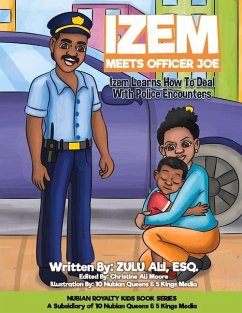Nicht lieferbar

Elaine K McEwan
Broschiertes Buch
How to Deal with Teachers Who Are Angry, Troubled, Exhausted, or Just Plain Confused
Versandkostenfrei!
Nicht lieferbar




Headteachers having to manage difficult teachers.
Elaine K. McEwan is a partner and educational consultant with The McEwan-Adkins Group, offering workshops in instructional leadership, team building, and raising reading achievement. A former teacher, librarian, principal, and assistant superintendent for instruction in a suburban Chicago school district, McEwan is the author of more than thirty-five books for parents and educators. Her Corwin Press titles include Raising Reading Achievement in Middle and High Schools: Five Simple-to-Follow Strategies for Principals, Second Edition (2006), Seven Strategies of Highly Effective Readers: Using Cognitive Research to Boost K-8 Achievement (2004), Ten Traits of Highly Effective Principals: From Good to Great Performance (2003), Making Sense of Research: What's Good, What's Not, and How to Tell the Difference (2003), Seven Steps to Effective Instructional Leadership, Second Edition (2003), Teach Them ALL to Read: Catching the Kids Who Fall through the Cracks (2002), and Ten Traits of Highly Effective Teachers: How to Hire, Mentor, and Coach Successful Teachers (2001). McEwan was honored by the Illinois Principals Association as an outstanding instructional leader, by the Illinois State Board of Education with an Award of Excellence in the Those Who Excel Program, and by the National Association of Elementary School Principals as the National Distinguished Principal from Illinois for 1991. She received her undergraduate degree in education from Wheaton College and advanced degrees in library science (MA) and educational administration (EdD) from Northern Illinois University.
Produktdetails
- Verlag: Sage Publications
- Seitenzahl: 280
- Erscheinungstermin: 1. Juli 2005
- Englisch
- Abmessung: 229mm x 154mm x 15mm
- Gewicht: 386g
- ISBN-13: 9780761938194
- ISBN-10: 0761938192
- Artikelnr.: 22251964
Herstellerkennzeichnung
Libri GmbH
Europaallee 1
36244 Bad Hersfeld
gpsr@libri.de
Für dieses Produkt wurde noch keine Bewertung abgegeben. Wir würden uns sehr freuen, wenn du die erste Bewertung schreibst!
Eine Bewertung schreiben
Eine Bewertung schreiben
Andere Kunden interessierten sich für






